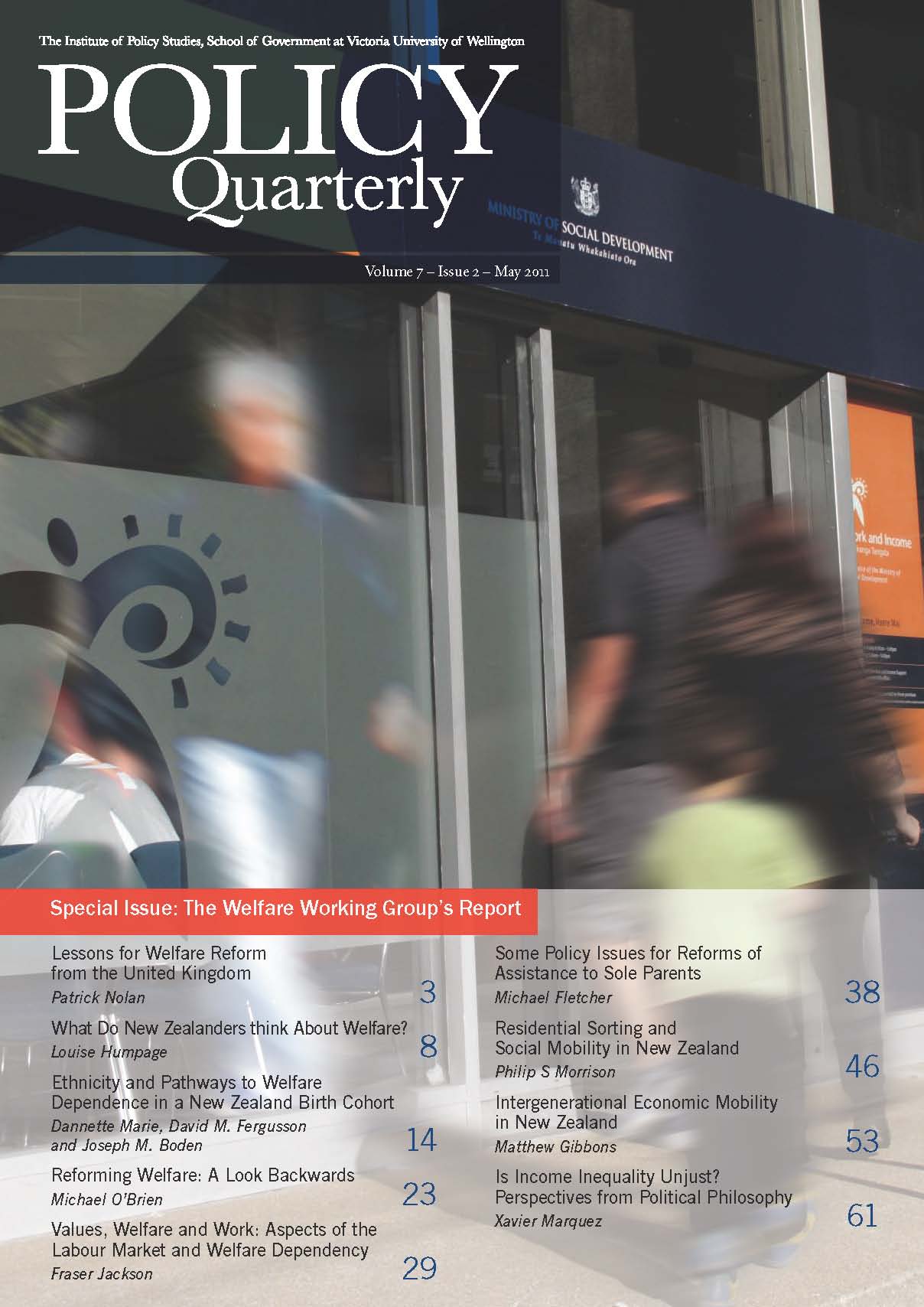Lessons for welfare reform from the United Kingdom
DOI:
https://doi.org/10.26686/pq.v7i2.4377Keywords:
welfare reform, middle-class welfare, long-term unemployment, 21st Century Welfare in the UK, welfare policy, universal creditAbstract
Welfare reform is high on the political agenda in both New Zealand and the United Kingdom. In New Zealand an independent welfare working group has released its final report and the prime minister, John Key, signalled that the government would consider its findings. In the United Kingdom the secretary of state for work and pensions, Iain Duncan Smith, has outlined plans to radically reduce the cost and complexity of working-aged benefits and to increase the involvement of the private sector in the delivery of services. This article compares welfare reform in New Zealand and the UK. Such a comparison is of interest given the similar social policy traditions in the two countries and similarities and differences in the approaches taken to their welfare reforms. There are also important lessons – on what to do and on what not to do – that the countries can learn from each other.
Downloads
Downloads
Published
Issue
Section
License
Permission: In the interest of promoting debate and wider dissemination, the IGPS encourages use of all or part of the articles appearing in PQ, where there is no element of commercial gain. Appropriate acknowledgement of both author and source should be made in all cases. Please direct requests for permission to reprint articles from this publication to Policy-Quarterly@vuw.ac.nz.



